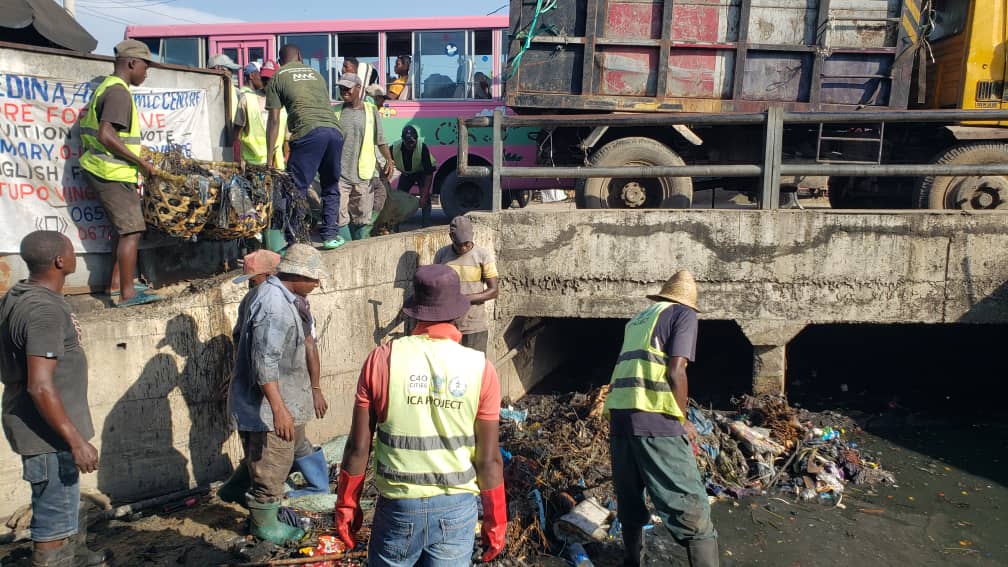Dar es Salaam. As the Ministry of Environment data shows that 63.4 percent of the waste generated in Dar es Salaam is organic, stakeholders are calling for environmental campaigns to address climate change impacts.
Most of this waste, primarily food and fruit scraps, releases greenhouse gases such as methane and carbon dioxide as it decomposes, contributing to climate change. Additionally, it clogs drainage systems, leading to flooding during rainfall.
Among the Dar es Salaam Urban Resilience Project (DURP) report, released on March 13, 2024, states, “Uncontrolled waste contributes to climate change as it is often dumped along roads, rivers, or drainage systems, damaging the environment.”
According to the report, 57 percent of the city’s daily 5,300 tons of waste remains on the streets, with only 1,500 tons reaching disposal sites. More than 60 percent of this waste is organic.
A Food and Agriculture Organization (FAO) report highlights that 1.3 billion tons of food are wasted annually, generating 3.3 billion tons of greenhouse gases—equivalent to 8-10 percent of global emissions.
Stakeholders propose robust recycling strategies and composting of organic waste to mitigate climate change effects.
Waste management
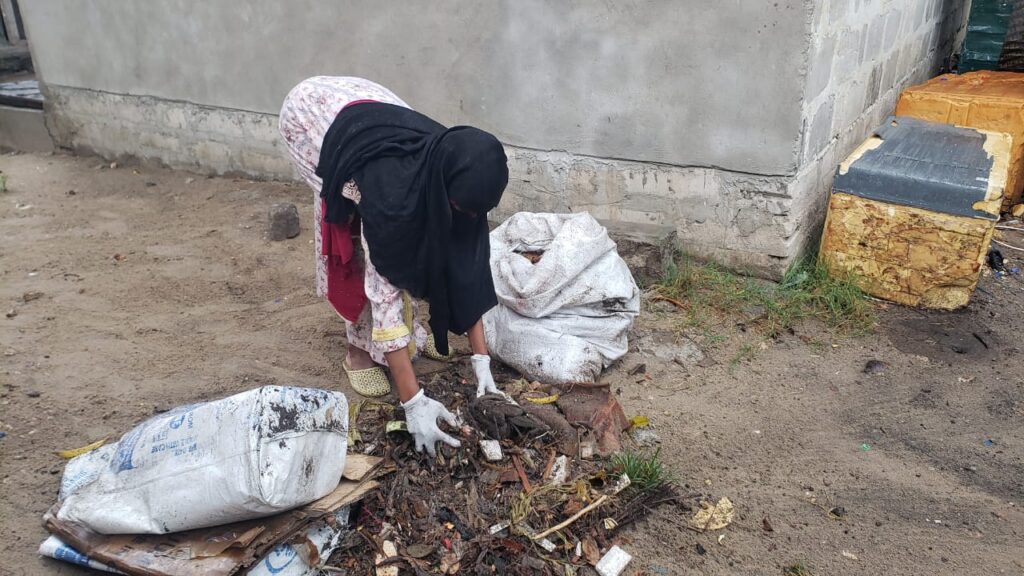
The Environmental Management Act of 2004, under Section 114, mandates local government authorities to oversee and reduce waste, which is primarily generated in homes and markets.
Mansoor Ali, a research leader and development consultant, states that six studies conducted under the 2024 DURP project, funded by the UK government, highlight the need to strengthen municipal waste management capacity to reduce climate change impacts.
“Waste managers should move away from the conventional waste management chain that starts with production, collection, and dumping. Instead, waste should be sorted at the source and processed accordingly. This increases its value and reduces environmental harm,” he said.
Mansoor added that one of the biggest challenges in capacity building is that training sessions are infrequent and lack continuity, making implementation difficult.
“We have trained more than 20 officers, expecting them to improve existing environmental campaigns and integrate climate change aspects to align with global realities,” he explained.
Municipal leadership
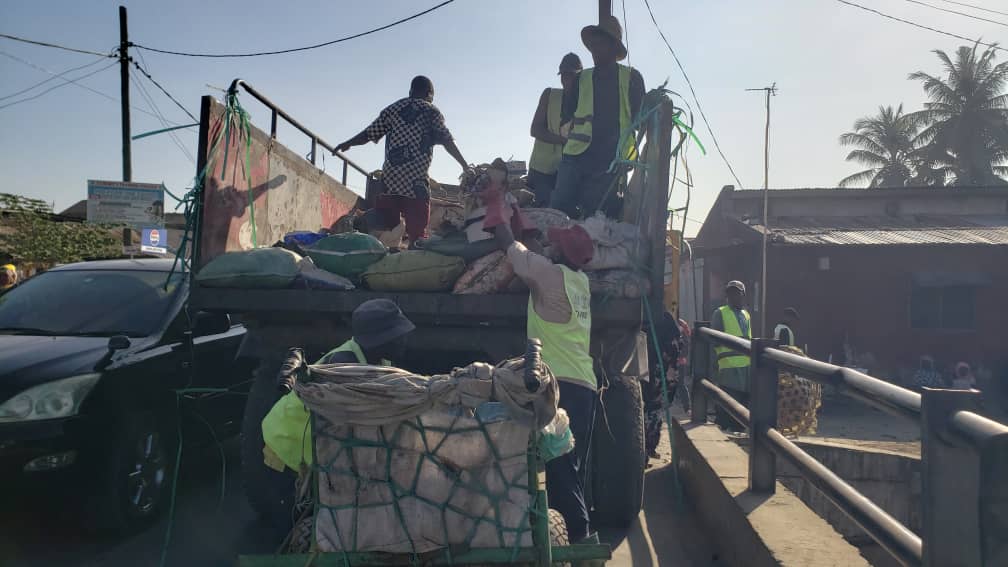
Geophrey Zenda, a senior environmental health officer in Ilala District and representative of the trained officers, emphasized the dangers of organic waste-generated greenhouse gases.
“Through these campaigns, we educate the public on waste separation, proper disposal, and recycling,” he said.
Zenda noted that they learned from global waste management practices, citing Pune, India, as an example where informal waste collectors have been registered since 2008 to help collect and sort waste before municipal authorities take over.
Additionally, biogas usage is promoted in households and restaurants as an alternative energy source.
Zenda stressed that success depends on community involvement, accurate data, innovative projects, private sector collaboration, support for informal sector workers, strong policies, project evaluations, and behavioral changes.
Municipal campaigns – Kigamboni District
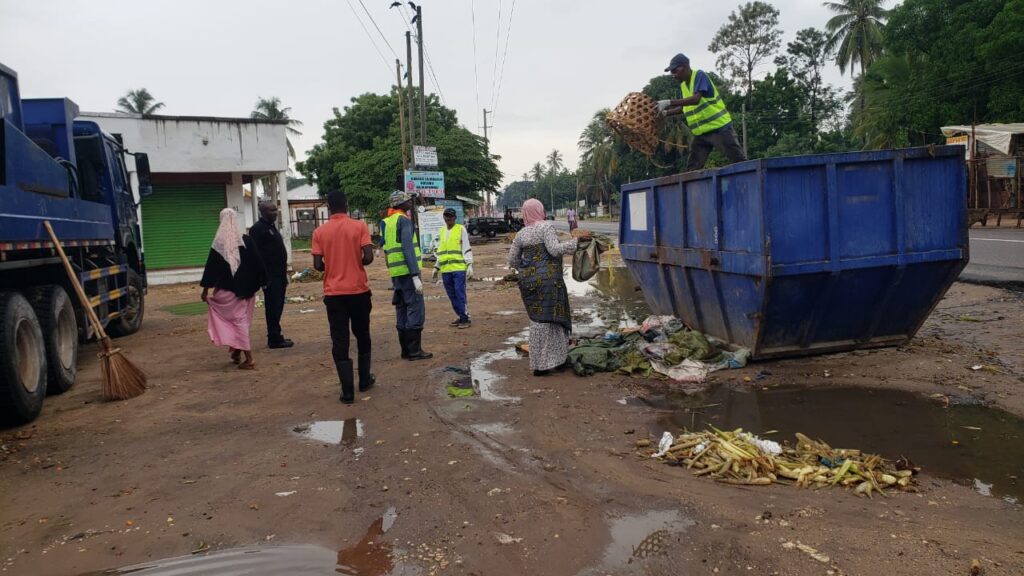
Residents of Mji Mwema Ward, Kigamboni, conducted a “Usagi ni mimi na wewe” campaign on March 12, 2024, cleaning the Ungindoni market and surrounding areas.
The activity was led by Sixbert Kyaruzi, Kigamboni Municipal Environmental and Health Officer, who emphasized the importance of cleanliness, particularly before the rainy season, to prevent disease outbreaks.
He urged, “We should separate waste since some can be sold or used as compost, while others can be recycled as they are.”
Shakukle Jafari, Chairperson of Ungindoni Street Government, praised residents for ensuring the market remains clean, acknowledging the high waste generation in the area.
Tomato vendor Devotha Zakayo supported the initiative but requested authorities to ensure timely waste collection to prevent bad odors.
Alnur Mshana, Mji Mwema Ward Health Officer, also provided public education on Mpox disease, urging residents to recognize symptoms and take preventive measures.
Temeke District: “Change Behavior, Turn Waste into Wealth”
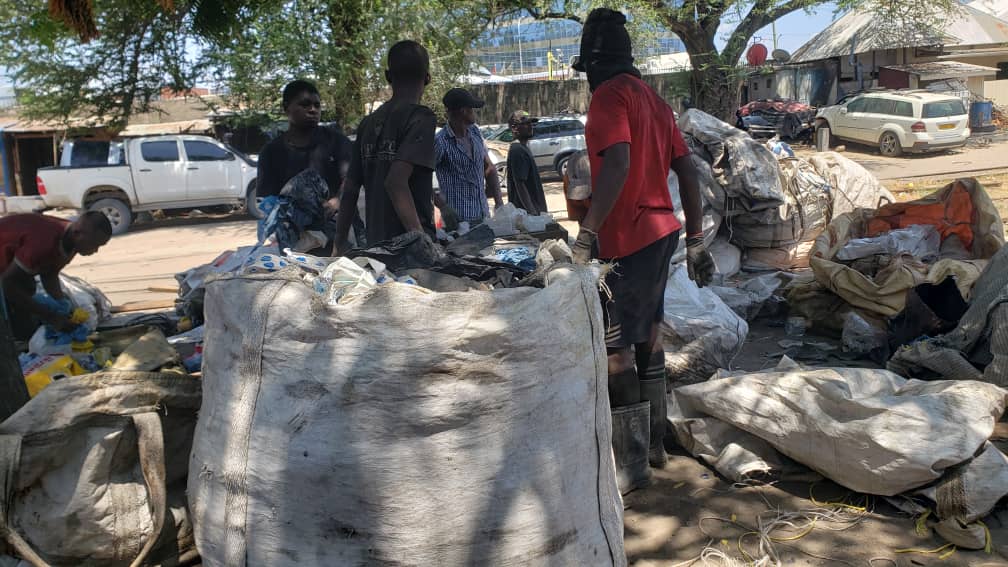
Residents of Kurasini, Temeke District, received education on waste-related opportunities during an environmental campaign on March 14-15, 2025.
The session was led by Imani Mohamedi Rajabu, Kurasini Ward Health Officer, in collaboration with environmental stakeholders.
“Today, we educated the public on how to utilize waste to improve both their daily lives and the environment,” said Rajabu.
He emphasized that waste is not trash but a resource that can generate income.
Mwamtum Gumbo, Chairperson of Mivinjeni Street Government, stated, “This education will reduce waste on the streets because people previously doubted that waste could be valuable. Now, a local entrepreneur has set up a small recycling plant, creating more awareness.”
However, Dotto Maliatabu, owner of the plant, highlighted challenges, particularly from some government officials who claim his operations pollute the environment. He has been working to educate them on the significance of his work in environmental conservation.
Saidi Fadhiri, a waste picker from Kurasini, shared his experience: “Despite earning a living from collecting waste, some people perceive us as street thieves. However, we contribute to a cleaner environment, and this is our livelihood.”
Ilala District: “Clean and Beautify the City”
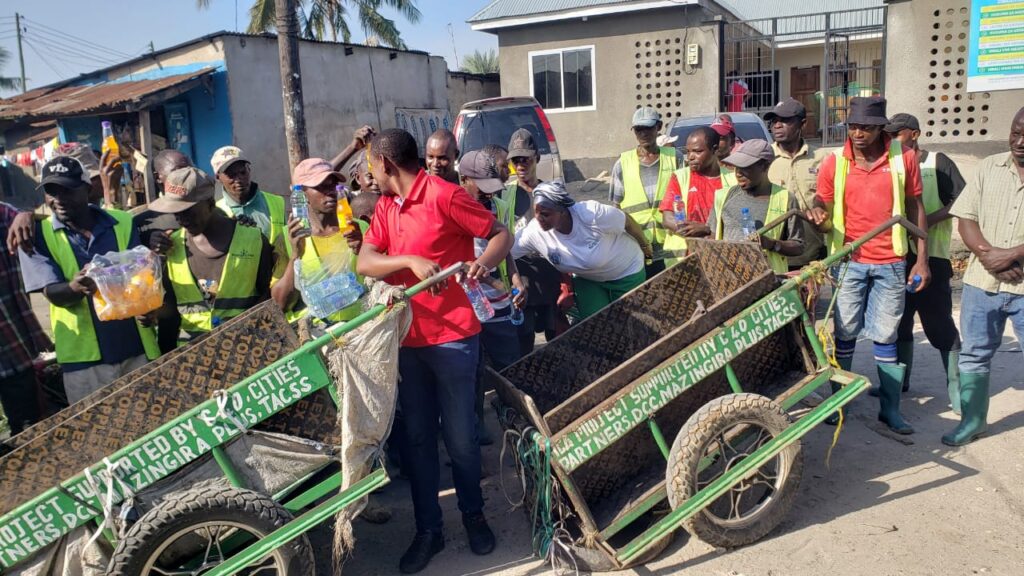
Residents of Kwa Kombo, Vingunguti, cleaned bridges and Kwa Simba Market under a special campaign on March 15, 2025, preparing for the upcoming rainy season.
The campaign was led by Amisa Mtendawema, Vingunguti Ward Health Officer, who explained, “We are aware that waste blocks drainage channels, causing floods and increasing the risk of disease outbreaks.”
Over 100 residents participated after a prior awareness campaign involving environmental stakeholders and community members.
Athumani Musa, Chairperson of Kwa Kombo Street Government, noted that the cleaning exercise at Kwa Simba Market was crucial because the market lacks a designated waste collection contractor.
Ilala Jogging Club, led by Hassani Samakimkubwa, also joined the exercise, emphasizing that their weekly cleaning campaign has significantly reduced disease outbreaks like cholera, particularly during the rainy season.
Kinondoni and Ubungo Districts
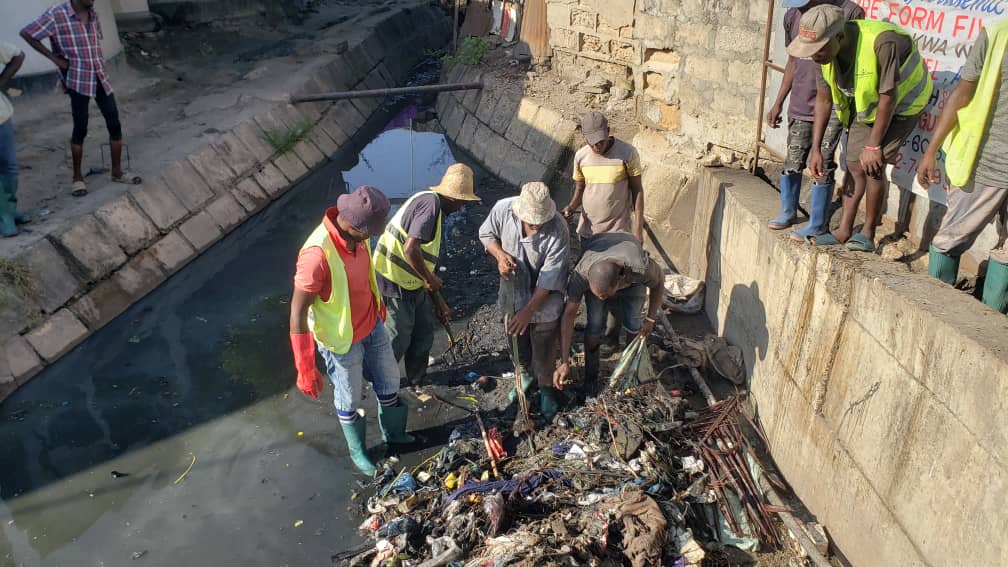
In Kinondoni, the “Foot by Foot in the Streets” campaign took place in Kwa Kopa, Mwananyamala, on March 18, 2025. Volunteers visited households to educate residents on waste management.
Alban Mugyabuso, Kinondoni Environmental and Health Officer, stated that the campaign aims to increase awareness, clean up environments, combat disease outbreaks, and boost residents’ income by adding value to waste.
Meanwhile, Anna Kitutu, Environmental Management Officer (EMO) for Ubungo Municipality, announced the continuation of the “KAUSAPEU” campaign (an acronym for Reject Dirt, Clean, and Beautify Ubungo).
“We plan to use Magufuli Bus Terminal’s public address system to promote environmental conservation and cleaning activities,” she said.


